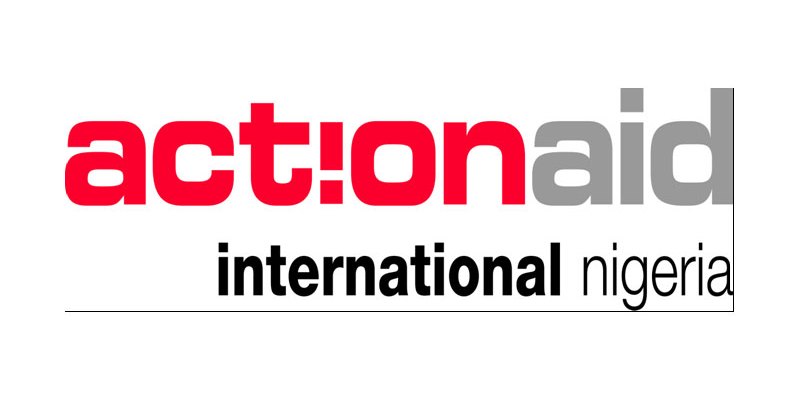The ActionAid Nigeria (AAN) and Action Aid International (AAI) have urged the federal government to abolish tax waivers to multinationals and increase property and luxury goods taxes to generate revenue to fund this years and subsequent budgets.
The organization made the call on Tuesday in at a press conference and webinar, on the International Monetary Fund’s (IMF) demand that public sector employee costs should be cut.
- Pandora Papers: ActionAid calls for measures to stamp out tax evasion
- PODCAST: How the 2022 Budget Will Benefit Ordinary Nigerians
The development has largely been seen as a move that may lead to loss of jobs.
The event also witnessed the release of the “Policy and Advocacy Brief on Trend in Public Sector Wage Bill in Nigeria and Effects on Public Service Delivery”.
However, the organizations said that in Nigeria already, the level of poverty was high, as well as those wages received by workers were inadequate despite the introduction of higher minimum wage by the present administration.
AAN, Country Director, Ms. Ene Obi, expressed concern over the IMF demand that public sector employee costs should be cut.
Obi, represented by the AN Director Resource Mobilization and innovation, Andrew Memedu, said, “Although there have been increases in the public sector wage bill at the federal level, there is evidence of wage cuts or freezes at the sub-national level.
“Despite the provision in the Minimum Wage Act, 2019 (Amendment Act) that provides for N30,000 minimum wage, compliance at the sub national level remains weak. Public financial reforms at the sub national level that are geared towards improving the quality of public service delivery by prioritizing workers welfare, should be pursued and implemented.”
She said that in light of the need for effective service delivery, there is a need to intensify efforts towards blocking revenue inflow to the federal government in other to make more funds available for funding the social sector and the nation’s overall development.
She said, “One way to do this is by abolishing tax waivers to multinationals. Property and luxury goods tax could also be increased.”
She also urged trade union and other stakeholders to be very active in the political space and become major ‘influencers’ of government policies and decisions, so that this would put them in a position of anticipating policies moves and engaging at an early stage before they are adopted or passed as legislation.
She also said that for the trade unions and stakeholders, effective engagement at public hearings at the National Assembly where bills are discussed before they are considered for passage into laws will also be important.
She said, “In the face of dwindling revenue and widening fiscal deficit, there is a need to minimize further accumulation of external debt. Therefore, stakeholders (National Assembly, Debt Management Office (DMO), and Federal Economic Council among others, should involve CSO’s and labor in discussions to contract debt.
“This should also be replicated at the state level. Meanwhile, there is a need to ensure that public borrowings are transparently applied to sectors that would improve gender-responsive public services and address poverty.
“As an alternative for revenue generation, there is a need to also improve Nigeria’s tax revenue by widening the tax net. This would involve improvement in tax collection, blocking leakages and ensuring that companies doing businesses in Nigeria pay their taxes.”
Speakers from the AAI during the webinar on IMF austerity proposal, said the IMF imposed austerity slashes three million front-line workers from world’s most fragile health systems.
The report of their findings said that the IMF’s demands to cut public sector employee costs undermines progress on health and education.
“The International Monetary Fund’s advice to cut government spending in the global south has wiped nearly $10bn from public sector wage budgets in just 15 countries, the equivalent of cutting more than three million essential jobs, such as teachers, nurses and doctors, despite the growing need for such professionals during the pandemic,” the report said.
The report, “The Public Versus Austerity”, shows how cutting budgets used to pay public sector workers is undermining progress on health, education and gender equality while blocking Covid-19 responses and the transformations needed to address the climate crisis.
The research by ActionAid and partners further highlights the need for reform at both institutions, towards a new policy direction which revalue the role of public employment and services in fostering development and growth.
Julia Sánchez, Secretary General at ActionAid International, said, “The IMF’s use of public sector wage bills cuts is blunt and directionless. Our research found there was no serious assessment of shortages of key workers in health and education to inform cuts or freezes, and no attempt to project the impact of wage bill constraints. Instead, IMF documents we analyzed used questionable data and inappropriate country comparisons to drive down wage spending.”
David Edwards, General Secretary at Education International said, “Public sector wage bill constraints have a devastating effect in the education sector. When the teacher wage bill is cut, students’ right to quality education is threatened by a lack of qualified teachers and unacceptably large class sizes.
“Given the global teacher shortage and rising attrition levels due to the pandemic, the IMF should be supporting low and lower-middle income countries to recruit and retain more well trained and highly qualified teachers rather than pushing for countries to reduce their spending on these workers that are so crucial for countries’ post pandemic recovery. Teachers are key for quality education and are crucial for achieving the global goal to ensure inclusive education for all.”

 Join Daily Trust WhatsApp Community For Quick Access To News and Happenings Around You.
Join Daily Trust WhatsApp Community For Quick Access To News and Happenings Around You.


